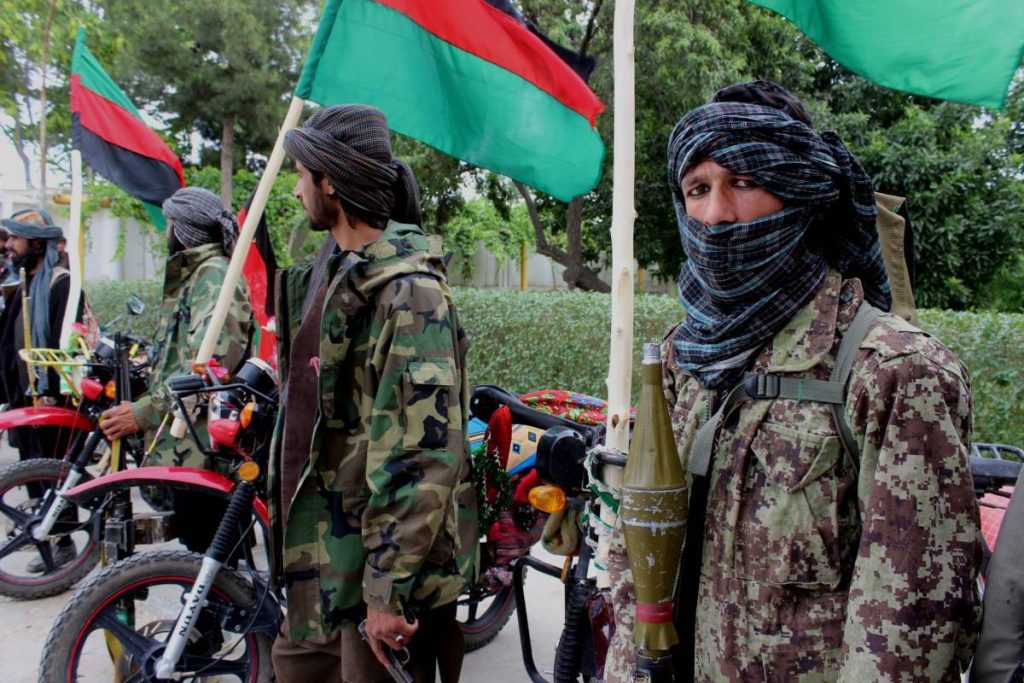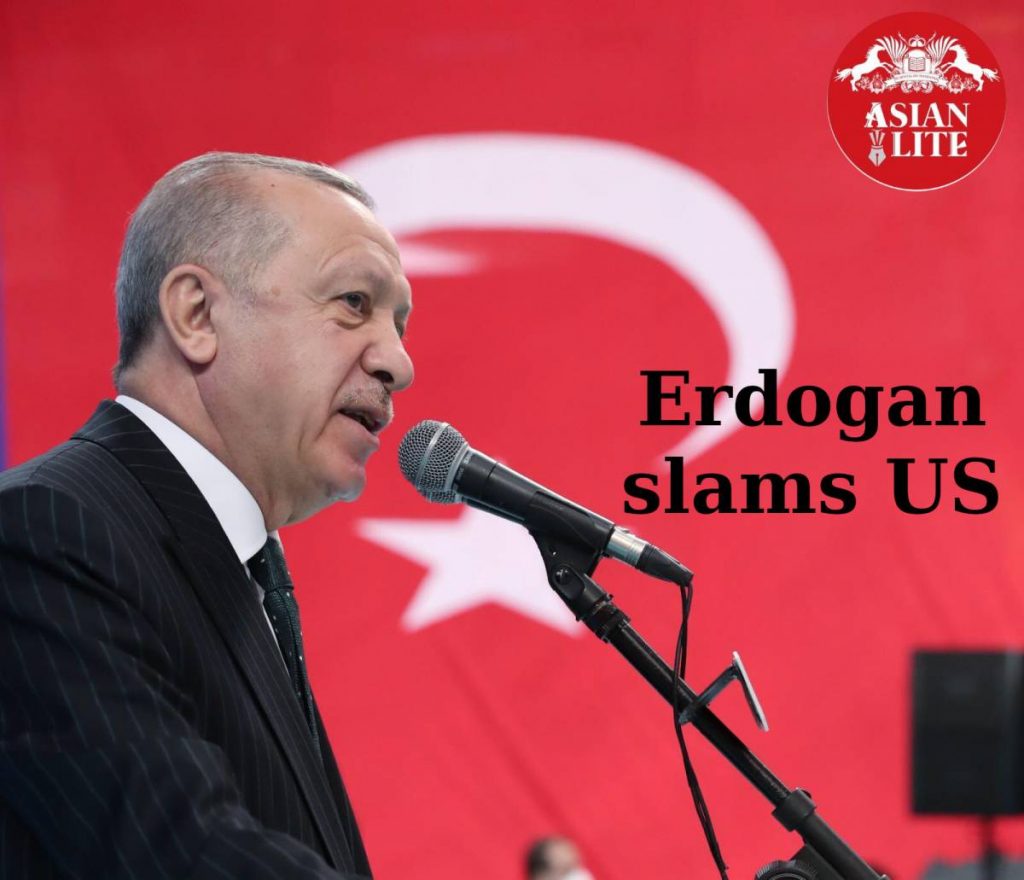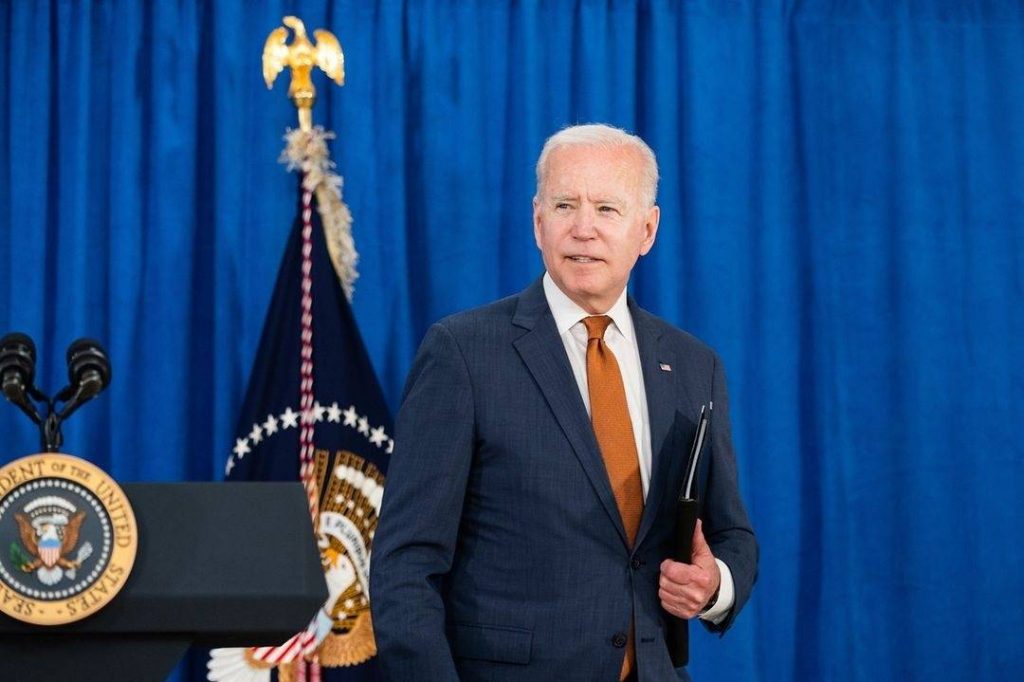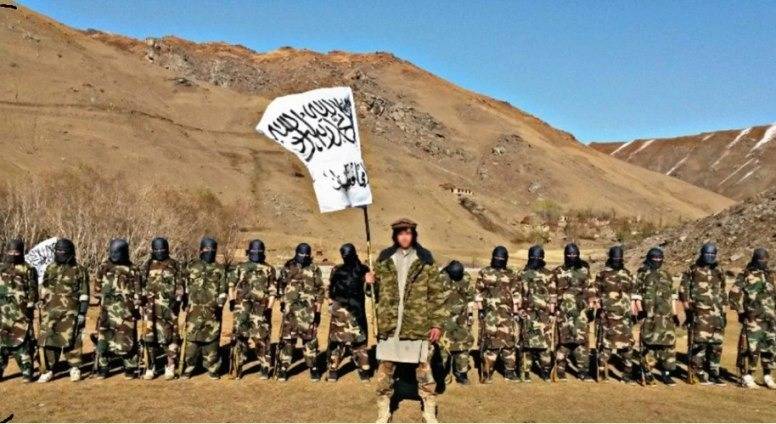A tweet by Mujahid said that his (Ghani’s) time is over and the announcement of warfare will not survive him…reports Asian lite News
Taliban said on Monday that Afghanistan President Ashraf Ghanis “time has run out”.
Reacting to Ghani’s remark that the ongoing war is an external intrigue imposed on the people of Afghanistan, Taliban spokesman Zabiullah Mujahid accused Ghani of lying and spreading false information.
A tweet by Mujahid said that his (Ghani’s) time is over and the announcement of warfare will not survive him.
“Speech by @ashrafghani is nonsense, an attempt to control his fears & dire situation. Nation has decided to pursue & bring national traitors to justice. Declarations of war, accusations & lies cannot prolong Ghani’s life, his time has run out, God willing,” Mujahid said.
Ghani during his speech in an exclusive gathering of the National Council – Parliament and Senate — said that the ongoing war is an external intrigue imposed on the people of Afghanistan and security forces are capable of repelling it.

The Afghan President said that he is predicting both opportunities and dangers but reiterated that the Afghan National Defence and Security Forces (ANDSF) have the ability to be solidified and return to the desired stance in the upcoming six months, media reports said.
Ghani also claimed to have sacrificed too much for durable and just peace in Afghanistan besides taking unprecedented decisions for the cause.
He praised the families which have lost their loved ones in fighting the Taliban and expressed pride of being the commander-in-chief of ANDSF in such a historic period.

Taliban warn Turkey
The Taliban called on Turkey’s military presence at Kabul airport “reprehensible” and warned of dire “consequences” after Turkish President Recep Tayyip Erdogan announced last month that his nation’s troops would continue to secure the airport in Afghanistan.
Jonathan Gorvett, writing in Asia Times said that as the fighting on the ground in Afghanistan continues, Turkey’s troops at the airport is likely to find themselves in the midst of great uncertainty.
The Taliban, which has recently accelerated its military campaign across the war-torn country, on July 13 described any further Turkish military presence as “reprehensible” and warned of dire “consequences.”
Ankara has deep-seated reasons to stick around, says Corvett as “Turkey wants to bring North-Atlantic Treaty Organisation (NATO) relations to a better ground,” former Turkish ambassador to NATO Mehmet Fatih Ceylan, told Asia Times. “Afghanistan is one area where Turkey can do this.”

Ankara’s agreement to secure the vital air link was key to the US President Joe Biden’s “positive and productive” description of his meeting with Erdogan at June’s NATO summit, reported Asia Times.
Turkey’s continued presence at the airport helps the US and its allies both cover their military withdrawal and maintain links to their embassies and missions in the Afghan capital.
It also helps Turkey mend some of its battered fences with the US, after years of argument and division, says Corvett.
Moreover, Turkey has long-standing links to Afghanistan after years of close involvement in the country and centuries of cultural and historical ties to the region.
A popular Turkish foundation myth has the original Turks, denizens of Central Asia and western China, following a “grey wolf” west out of their ancestral homelands to their current Anatolian location.
Grey Wolves is the informal name of the ultra-nationalist organisation Ulku Ocaklari (Idealist Hearths), founded in the 1960s by Alparslan Turkes, a colonel who had been involved in the 1960 coup which overthrew Prime Minister Adnan Menderes, reported Middle East Eye.

Ulku Ocaklari is often referred to as the youth or street movement of the Nationalist Movement Party (MHP), also founded by Turkes, which is currently allied with President Erdogan in Turkey.
Ideologically, both organisations supported pan-Turkism, which emphasises unity between the world’s Turkic nations.
The Grey Wolves were originally a fiercely anti-communist group, hostile to democracy, advocating violence against those they saw as Turkey’s enemies, reported Middle East Eye.
Reality or myth, many of today’s Turks do have ancestry and family stretching across Central Asia, with the Turkic peoples including Azeris, Turkmens, Uzbeks, Kyrgyz and Uyghurs, reported Asia Times.
However, what happens now remains highly uncertain as Afghanistan falls deeper into conflict, while the country also becomes a battleground for a range of competing for international interests, said Corvett.
That’s a grim prospect for a country where already since the start of this year some 294,000 people have been driven from their homes, 77,000 of them just in the last month, according to the UN. (IANS/ANI)

Leave a Reply